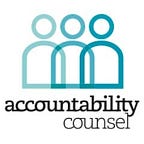Gaining Access to Information: The Case of Nepali Communities & The World Bank
By Siddharth Akali, Accountability Counsel and Shankar Limbu, LAHURNIP
In January 2019, after much effort by Nepali communities and civil society organizations, the World Bank released a report in Nepali about preventing and mitigating conflicts related to infrastructure siting in Nepal. This article provides an overview of a two year process over which Nepali communities affected by a World Bank-funded transmission line compelled the Bank to disclose the report, and make it available in the local language of Nepali. Development finance institutions like the World Bank often make strong public statements in favor of transparency and citizen engagement. However, in practice, they can tend to strategically withhold information or fail to ensure that information is available in the primary language of local communities who are directly affected by their projects. This needs to change.
There has been a proliferation of conflicts between local communities and government authorities in Nepal over the siting of infrastructure projects, including projects that are funded by the World Bank. Some of these projects had become violent and resulted in serious human rights violations, delays in project construction, and cost overruns. In early 2016, the World Bank hired an international dispute-resolution expert, the Consensus Building Institute (CBI), to understand and address these conflicts. The CBI report had been completed in September 2016, and affected communities were hopeful that the report could begin a national and international conversation on better benefit-sharing schemes for affected Nepali communities. The report also highlighted the need for a national dialogue on energy issues, with the objective of educating the public about energy issues, and building bridges of understanding between policy-makers, parliamentarians, civil society and energy sector actors.
Despite numerous requests by Nepali communities, the World Bank refused to disclose the CBI report, claiming that it fell under the “deliberative information” exception in the Bank’s access to information policy. Various development finance institutions have access to information policies, which typically call for disclosure. These policies result in the creation of formal access to information request processes similar to those often legislated at national levels. The underlying idea is that because development finance institutions use public money, they have to be transparent and accountable to the public. Most of these policies state a few exceptions to disclosure. Key among these is an exception to safeguard the deliberative or decision-making process at the institutions. However, there is a lack of clarity on what is captured by deliberative information, allowing for this rule of exception to be potentially abused.
In this case, the Nepali communities felt that the World Bank was misinterpreting the deliberative information exception policy. The communities felt they were entitled to see the report because Bank management had commissioned the report in response to their complaint to the Bank’s independent complaint office, the Inspection Panel. The Panel found that conflicts had occurred in part because the bank’s environmental and social safeguard policies had not been followed. There were also public interest reasons to disclose the report as its recommendations could help prevent human rights violations against communities affected by other hydropower infrastructure-related projects in Nepal.
The communities pursued the Bank’s formal access to information process, which took over a year. After a lengthy and arduous process of formally requesting for information, and then filing two levels of administrative appeals, the World Bank’s Access to Information Appeals Board — consisting of three independent, outside experts — determined the Bank was improperly restricting access to the report and compelled disclosure of the report. The Appeals Board’s decision is interesting because very few information requests reach the board, and even fewer result in disclosure. Out of ten cases the board has decided on, this is the third time it has granted disclosure since it was formed nearly a decade ago. For context, last year the Bank’s access to information team handled over seven hundred requests.
The Appeals Board’s decision also helped narrow the definition of what is deliberative information, and set a precedent that might prevent Bank management from misusing this exception clause in other cases going forward. Bank management was unable to identify any specific internal decision-making process within the Bank, which the CBI Report was used (or intended to be used) for. The Appeals Board found that that a report being potentially used to design new energy projects was not related to any specific decision, and so did not need to be protected from disclosure.This suggests that the more the appeals board is used, the more guidance will likely be provided to Bank management on how to apply its access to information policy.
One of the issues that remained even after the Bank disclosed the CBI Report in October 2018, was that the report was in English. It remains unclear why an institution committed to citizen engagement had not translated a report about conflicts in Nepal in Nepali to begin with. However, when requested, the Bank did agree to translate the report for Nepali communities, and posted an unofficial Nepali version three months later.
The fact that the only way for communities to actually access the report in their own language was through a lengthy resource-intensive process, with assistance from lawyers, belies the Bank’s stated commitments to transparency and citizen engagement. Development finance institutions like the World Bank still have much work to do to become truly transparent and accountable. In the meantime, affected communities and civil society organisations, who are seeking information from development finance institutions should be aware of the existing options and that it may be possible to obtain disclosure from pursuing such access to information processes.
